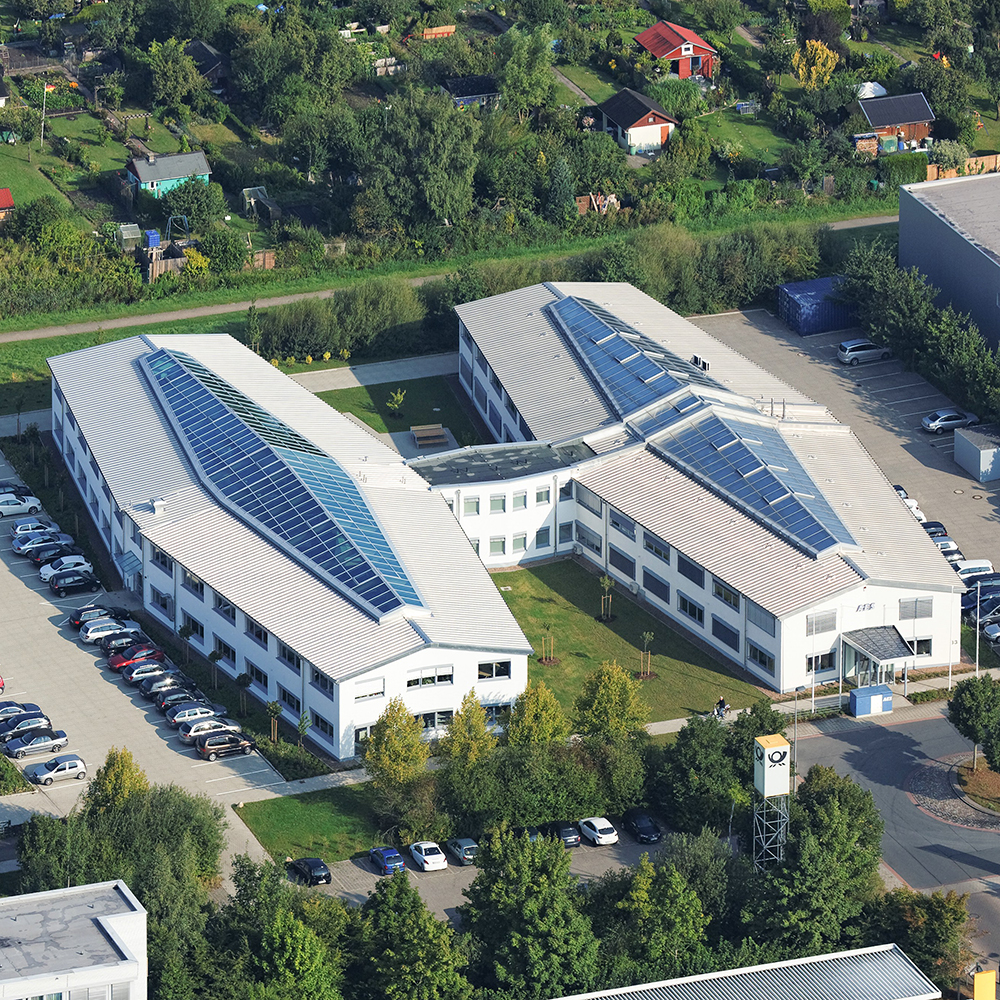Light Systems:
The Lights & Mechanics Competence Centre is responsible for light and circuit development, mechanical design, and prototype construction.
The Lights & Mechanics Competence Centre at AES includes employees from various departments, including light development, circuit development, mechanical design, and prototype construction.
The team members work in close proximity, as the optical and electronic developers are in the same office area as the mechanical designers. This helps promote effective teamwork between the departments within the L&M Competence Centre, and facilitates developers and designers to keep a watchful eye on any new developments, at all times.
Team members shadow products, through every step of the life cycle: from creating specifications, developing solution concepts, and making design drafts, to detailed construction work, series launches and ongoing support. This interdisciplinary team welcomes the challenges posed by unique client requests, e.g. the illumination of useful aircraft cabin objects, such as, clothing rails, and cosmetic mirrors.
AES primarily develops and produces aircraft lighting for various applications, with a more detailed focus on LED aircraft lighting. Over time, this has evolved into some close working relationships with prominent LED manufacturers, allowing us access to the latest data and LED developments. As a result, we have extensive knowledge about how LEDs behave in diverse operating and environmental conditions. Today, we can create durable lights with consistent light quality, incorporating these advantages into other product developments.
Optical calculations, with both general and advance endurance tests, ensure ideal results. Our engineers analyse these results in our light laboratory. Light measurement services and technical support are also available upon request. We design efficient control circuits, in coordination with, customer request and specific aviation requirements, employing thermal analyses and strong heat management to guarantee a robust design. AES utilizes Altium Designer to lay out circuit boards consistent with EMI criteria. We can also figure insulation spacing and placement requirements, featuring multilayer techniques and delicate structures depending on the application. Component data is electronically transferred to the ERP system, guaranteeing error-free part lists and quick material procurement.
In addition, we also develop processor based light control systems, which are able to create various lighting scenarios, while connected to the client cabin management systems. These also have internal power supplies for direct and immediate energy.
Mechanical constructions are another area of our proficiency. We prepare designs, which includes housing, PCB configurations and attachment points. We offer a wide range of technologies for multiple requirements, including plastic injection molding (also in optical quality), sheet metal construction and composites, for example. At AES, we use production processes (3D printing) to manufacture prototypes, in addition to, series products.
We choose the ideal process for our projects, always taking, the material and application requirements into consideration. After finding the most suitable materials, we consult our customer to review the surface treatments including passivation, varnishing and metal layering. Therefore, the customer can evaluate the environmental characteristics and criteria for their final approval. Our light housings feature, decorative surfaces from small colour tolerances through to real gold lamp finishes.
We have skilled knowledge in using color sensors chips to compensate for color drift caused by temperature or LED aging. This is especially important for cabin lighting, to ensure that passengers see, homogeneous lighting throughout the cabin, continuously. We can achieve color homogeneity in less than three SDCM with high color reproduction values.
We have also developed lighting compatible with the night vision system (NVIS) in accordance with the MIL-STD- 3009, as well as, state-of-the-art technologies like OLEDs (Organic Light Emitting Diode).
Naturally, we meet the requirements of major aircraft manufacturers in relation to our materials and their attributes, such as corrosion resistance, resilience to aggressive media, and flammability levels. This means, AES prepares design calculations and conducts analyzes, to ensure that their construction is sound (e.g. thermal analyses, strength calculations, FEM, reliability analyses, considering EMV requirements).
We use 3D CAD software CATIA, which allows us to exchange 3D models for digital mock-ups. For example, 2D AutoCAD is ideal for creating print templates. Our designers create all the documentation necessary for production and assembly, including single part and assembly drawings with complete measurements, fits, tolerances, and standards. They define delivery and production regulations, conduct the first article inspection (FAI) in accordance with EN9102, and prepare test templates for quality assurance and goods receipt. Our lab mechanics can build prototypes in our development lab and workshop, and make these available to developers and constructors for testing purposes whenever needed.
Clients
AIRBUS OPERATIONS
LUFTHANSA TECHNIK
FERCHAU
TURKISH AIRLINES TECHNIC
EMIRATES AIRLINES
P3 ENGINEERING
ASSYSTEM
JET AVIATION
ZODIAC
JAMCO CORPORATION
AIM AVIATION
OHB
E.I.S. ELECTRONICS
BUCHER
ALTRAN
TGB
DIEHL
ELAN-AUSY
SELL GMBH
RECARO
SR TECHNICS
QATAR AIRWAYS
AMES
HAPPICH
TCI CABIN INTERIOR
EMIRATES AIRLINES
OHB
B/E AEROSPACE
SINGAPORE AIRLINES
AMAC AEROSPACE
B/E AEROSPACE
UNITED ENTERPRISE

